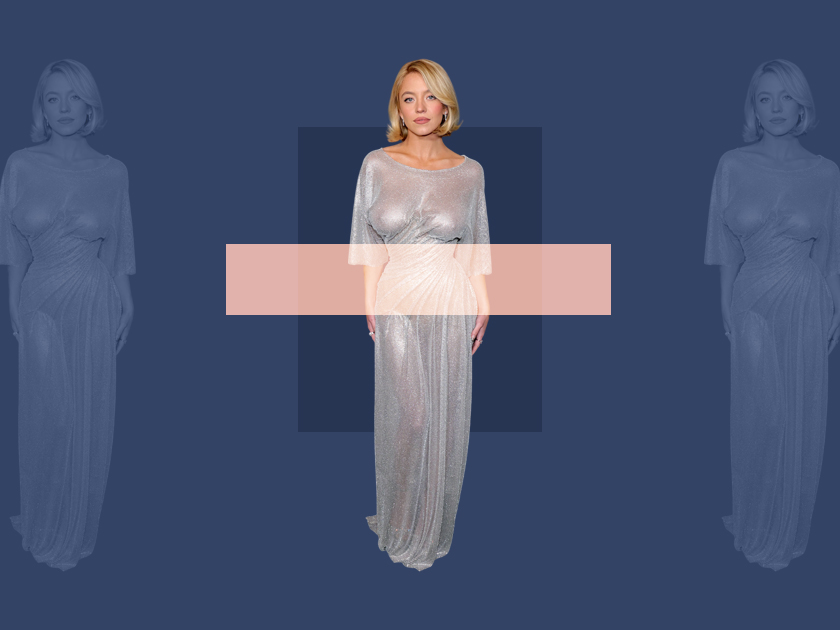The Berlin Film Festival has made it one of its top priorities this year to “stand with the courageous protesters in Iran who are fighting back against a violent, undemocratic regime”.
The festival hosted a panel discussion on the theocratic government’s persecution of artists and also hosted a “solidarity protest with Iran” on the red carpet of the Berlinale Palast last week, which was attended by Jury President Kristen Steward.
This statement of support recognizes the upheaval in Iranian society following the death of Mahsa Amini, a 22-year-old woman who was in police custody last September for allegedly not wearing a hijab in public. Outrage over her death sparked mass protests in Iran, arguably the biggest threat to the Islamist regime’s rule since the 1979 revolution.
One of the films, which had its world premiere at the festival, shows another chilling example of how the Iranian state apparatus subjugates and kills Iranian women. Seven winters in Tehrandirected by Steffi Niederzoll follows the case of Reyhaneh Jabbari, a 19-year-old young woman who aspires to study in the capital. The Berlinale program sets the tone: “In the summer of 2007, an elderly gentleman approaches Jabbari and asks the architecture student, who works part-time as an interior designer, to help her set up offices. During the site visit he tries to rape her. Reyhaneh stabs him in self-defense. She is arrested for murder and sentenced to death.”

For seven long years – the “seven winters” the film’s title refers to – Jabbari languished behind bars, unsure if and when she would be executed. Thanks in part to the efforts of Jabbari’s mother, Shole Pakravan, the case gained worldwide attention. He was born in Nuremberg and first found out about this through media reports.
“In 2014 it was also in the news in Germany,” explains Niederzoll. “Reyhaneh’s uncle lives in Germany, so he did the press [interviews] Here. I knew a little, a little, just a few lines of her story, and of course not as deep as me and my whole team got into the story at the time.
Reyhaneh was the youngest of three girls and grew up “progressively” in repressive Iran. After her arrest, Reyhaneh’s family was told by the police that they could not see her or hire a lawyer. One of her sisters told the filmmaker the family had learned that Reyhaneh’s attacker, Morteza Sarbandi, was “a key player in the intelligence community,” an ominous sign of the kind of justice the accused woman could expect.
From the start, the authorities tightened the screws on Reyhaneh and her family to force a confession. Reyhaneh later revealed that she was beaten during police interrogation and kept in solitary confinement in prison. An interrogator told Reyhaneh that her family left her out of shame over her “crime”. Her youngest sister was arrested as an accomplice to murder and was reportedly threatened with torture. In an interview with Niederzoll, Reyhaneh’s mother said that when the police searched her daughter’s room, they planted a knife case to show that Sarbandi’s killing was premeditated.

Even before the trial, Reyhaneh received 30 lashes for “having an extramarital affair, but no sexual intercourse”. Two years passed before she was found guilty of first degree murder and sentenced to death by hanging for Sarbandi’s death as a “blood feud”. As alleged victims in the case, Sarbandi’s family had an opportunity to forgive Reyhaneh and overturn her death sentence.
Sarbandi’s family wanted a reprieve for Jabbari, but only on the condition that she withdraw her charges. She refused. Just before she was executed in 2014, Reyhaneh sent a message to her family. “Please that my heart, kidney, eye, bones and anything that can be transplanted be taken from my body and given as a gift to someone who needs it,” she told her lover. “I don’t want the recipient to know my name, buy me a bouquet or even pray for me. I tell you from the bottom of my heart that I do not want a grave for you to come there to mourn and suffer. I don’t want you to wear black clothes for me. Do your best to forget my hard days. Give me to the wind to take away.”

Reyhaneh wrote letters and diaries during her detention and managed to smuggle the writings out of prison. Iranian actress Zar Amir-Ebrahimi, who was forced to flee Iran in 2008 after clashing with state authorities herself, echoes Reyhaneh’s words in the film.
“When I started reading the letters, I couldn’t stop crying,” recalls Amir-Ebrahimi. “It was really moving for me. [The letters refer to] rape. It is about how you are treated as a woman in this society. And I personally think I know that story. I could have ended up like them and I could imagine being in that prison.
Speaking to Deadline in Berlin, Amir-Ebrahimi became emotional as he reflected on what Reyhaneh went through. Speaking about the letters, she said: “Something came out of my heart that was very connected to her, even though I never met her… It’s hard to imagine spending seven years with that little hope of a normal life.” , maybe a year.” Day. And then I can imagine her saying it’s not going to happen and you lose this life, but you stand for more than that – your voice, your dignity. It’s really so heartbreaking.”
says Amir Ebrahimi Seven winters in Tehran speaks for a stark reality in Iran.
“We have a patriarchal tradition, but in this case it’s not just about that, it’s about the really, really corrupt system [authorities] do what they want with people, especially women,” she says. “If you don’t work with them, you’re doomed to die or be isolated or whatever. That’s the problem with this system. That is why it is so important that Shole [Reyhaneh’s mom], and Steffi, they make this film. It’s been years since Reyhaneh left, but the whole world needs to know about this story.”
Source: Deadline
Bernice Bonaparte is an author and entertainment journalist who writes for The Fashion Vibes. With a passion for pop culture and a talent for staying up-to-date on the latest entertainment news, Bernice has become a trusted source for information on the entertainment industry.





